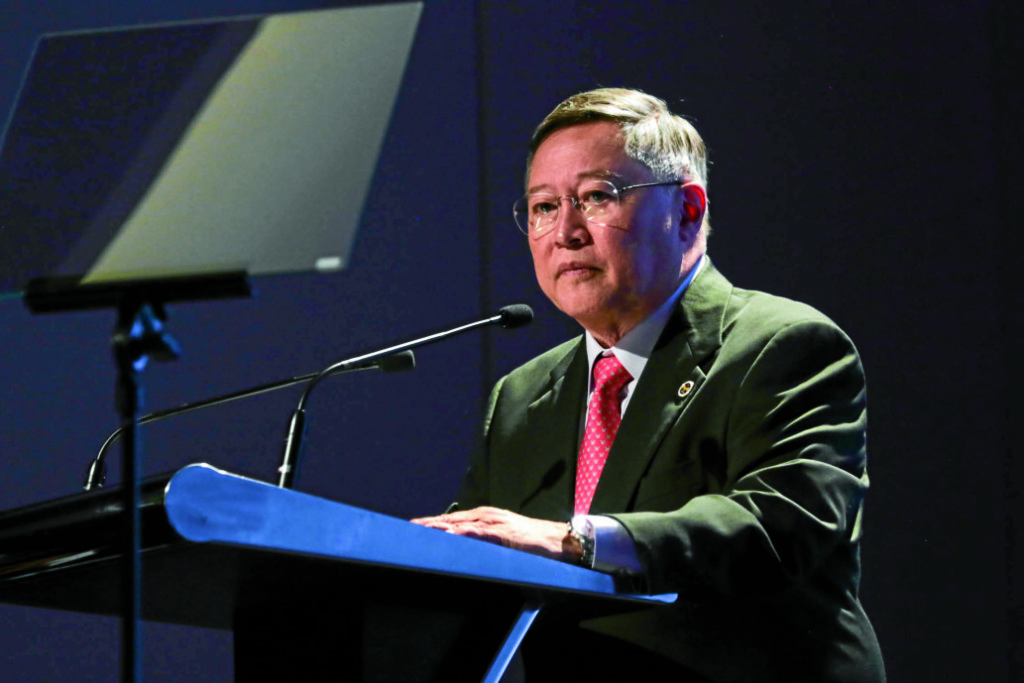The head of the Duterte administration’s economic team on Thursday said the declaration of martial law in Mindanao will protect businesses there from the threat of terrorism and would unlikely slow the country’s growth momentum.
“The economy is in no way threatened by the imposition of martial law. The military is in full control of the government installations and major infrastructures on the island,” Finance Secretary Carlos G. Dominguez III said in a statement.
Dominguez said that “martial law will ensure that these facilities are protected so that business transactions will be unaffected.”
According to Dominguez, President Rodrigo Duterte himself committed the government to do “anything and everything” to end violence in Marawi City as well as “restore normalcy in the affected areas as quickly as possible so as not to affect the economy.”
While Marawi is Lanao del Sur’s business and economic center, Dominguez said that “the threats by lawless elements are contained in areas far from Mindanao’s major business centers and the military is doing everything to minimize these.”
“Martial law in Mindanao for a limited period is intended to protect the flow of commerce, protect the innocent and eliminate future threats to the communities,” the Finance chief said.
READ: Private sector backs martial law in Mindanao
Also, Dominguez said that pursuing peace and order in Mindanao will help slash the poverty incidence in the war-torn island.
“The President is determined to protect the lives of innocent civilians and he will apply everything within his legal means to stop these extremist terrorist groups from further threatening the people of Mindanao and undermining government efforts to lift people up from poverty and transform southern Philippines into a major growth center and investment destination,” according to Dominguez.
For Dominguez, “threats of violence in the poorest regions of the country will not affect adversely the economic position of the whole country,” citing that since “the centers of commerce and sources of growth are in areas far away from the sites of potential conflict, economic expansion will not be jeopardized and economic opportunities will remain robust.”
“These threats will, however, dampen the economic prospects of the poorest regions. The government plans to revive this regional economy and transform it into a meaningful participant in the country’s growth will be held in abeyance until lasting peace is attained,” Dominguez said.
Citing Department of Finance data, Dominguez said the Autonomous Region in Muslim Mindanao, where Marawi is located, accounted for a mere 0.6 percent or P50.6 billion of the P8.1-trillion gross domestic product (GDP) last year, the smallest share among the country’s 17 regions.
The entire Mindanao contributed 14.4 percent to last year’s GDP, as it grew 6.4 percent year-on-year in 2016 or faster than the 5.8-percent growth in 2015.
READ: Economic expansion slowed in Q1
On a more personal note, Dominguez said “I have known President Duterte for a long time: he is a strong leader driven by an intense love for this country—a man of grit and fortitude and determination who is no stranger to situations such as what is currently happening in Mindanao.”
“President Duterte’s record in Davao City is strong proof that he has what it takes to overcome and prevail over any and all kinds of threats, turning an area that was once known as the ‘Wild Wild West’ into a thriving, prosperous and stable city in Mindanao,” Dominguez said.
RELATED VIDEO
